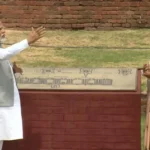Morse code: In today’s world of smartphones and instant messaging, it’s easy to forget about the fascinating history of communication. But let’s take a step back and explore one of the oldest methods of long-distance communication.
What is Morse Code?
Morse code is a way of sending messages using a series of short and long signals called “dots” and “dashes.” These signals represent letters, numbers, and punctuation marks. It’s like a secret language made up of beeps!
Who Created Morse Code?
It was invented by Samuel Morse and his assistant Alfred Vail in the 1830s. They needed a way to send messages over long distances using electrical telegraph systems. Morse code became the standard for telegraphy for over 100 years.
How Does Morse Code Work?
Each letter of the alphabet, as well as numbers and some special characters, is represented by a unique combination of dots and dashes. For example, the letter “A” is represented by one dot followed by one dash (·–), while the letter “B” is represented by one dash followed by three dots (–···).

Learning Morse Code
Learning Morse code is like learning a new language, but it’s simpler than you might think! You can start by memorizing the basic codes for each letter. There are also many apps and online resources that can help you learn Morse code in a fun and interactive way.
Using Morse Code
In the past, Morse code was used primarily for long-distance communication via telegraph systems. Operators would listen to the beeps and translate them into letters and words. Today, Morse code is still used in some situations, such as by amateur radio operators and in emergency situations when other forms of communication are unavailable.
Conclusion
Morse code may seem like a relic of the past, but its legacy lives on in our modern world. It’s a testament to human ingenuity and the power of communication. So the next time you hear a beep, remember that it might just be someone sending a message in Morse code across the airwaves. Who knows, maybe you’ll decide to learn this ancient language yourself!











3 thoughts on “Decoding the Dots and Dashes: Unlock the Secrets of Morse Code”